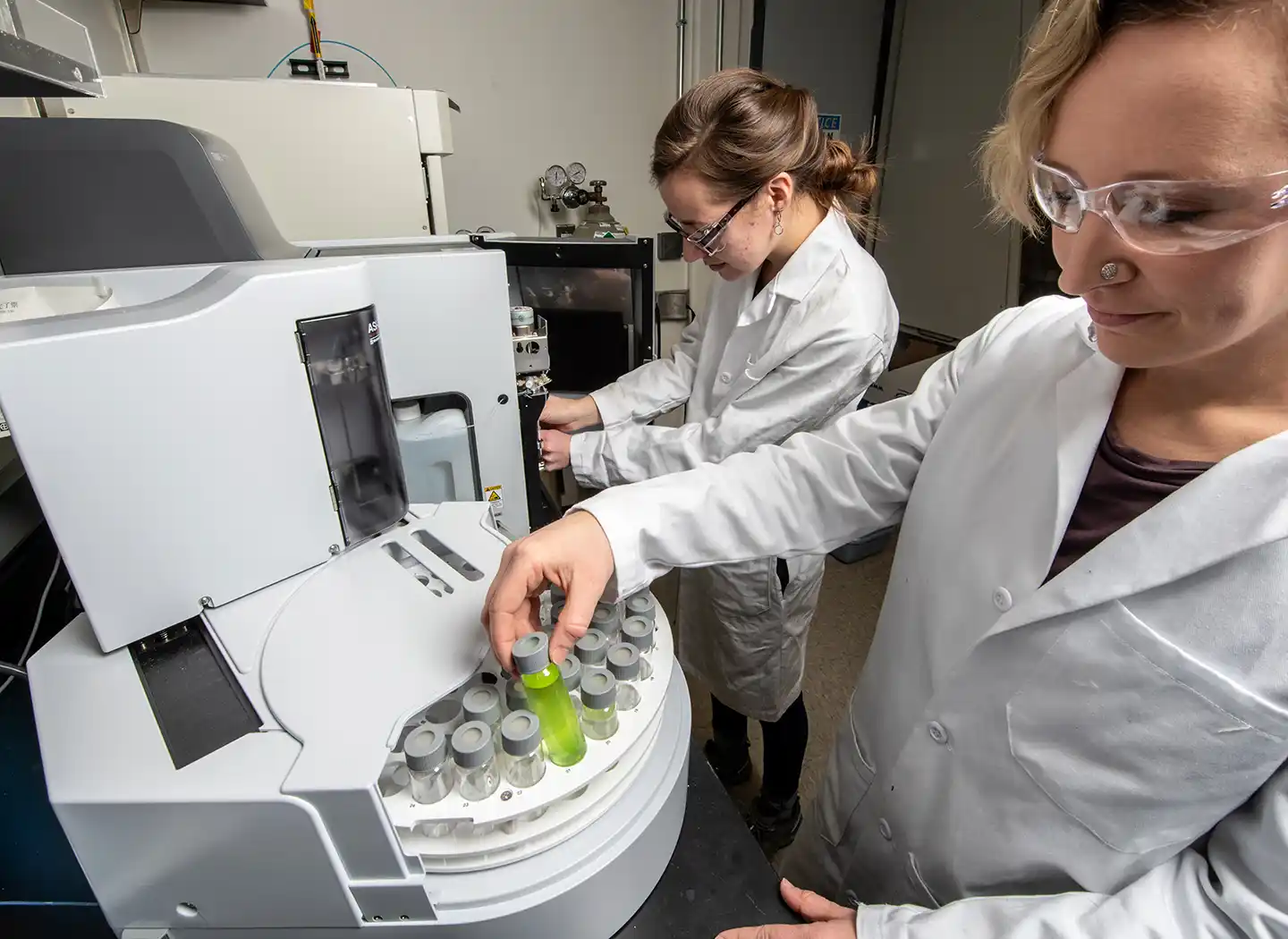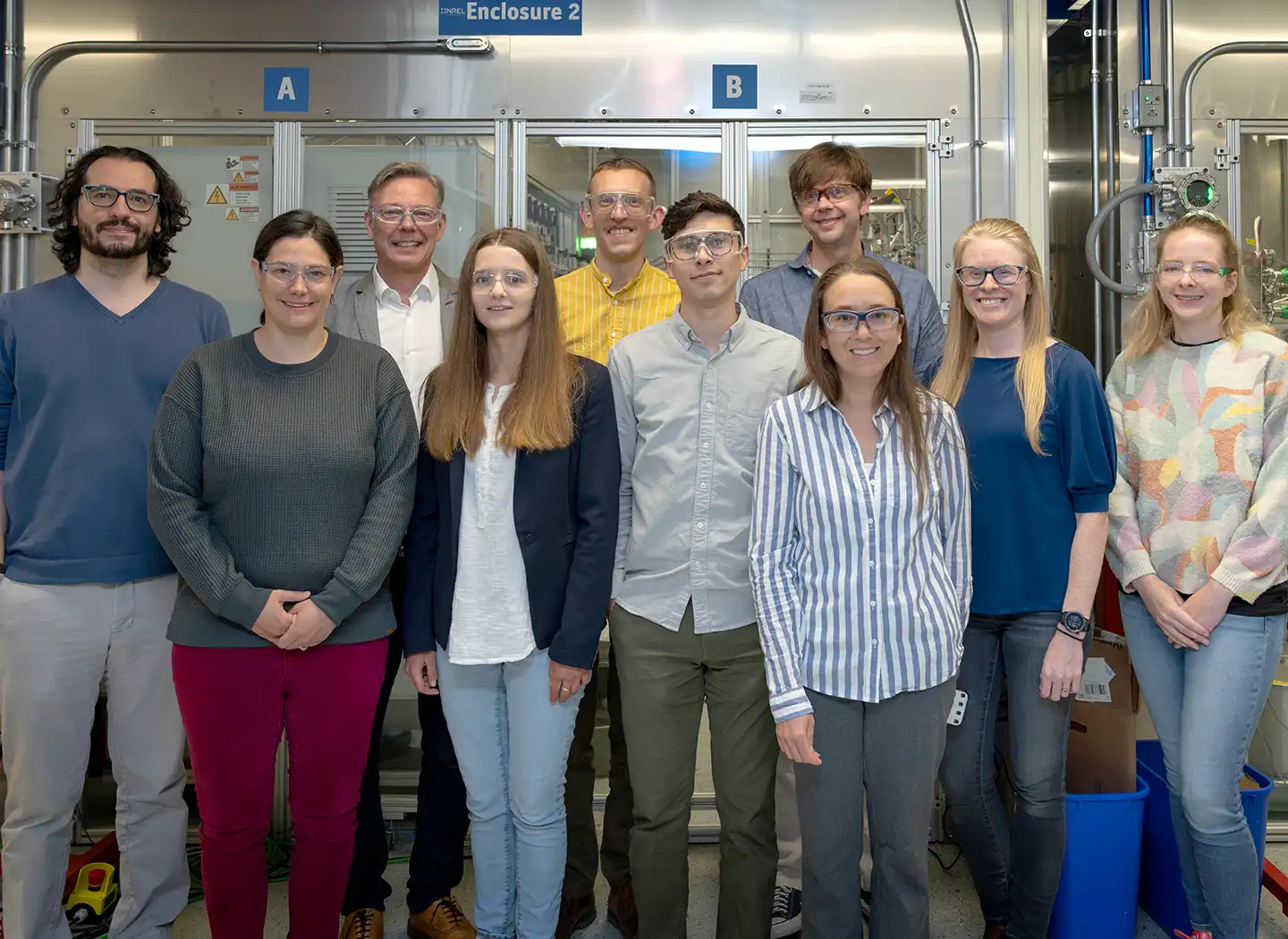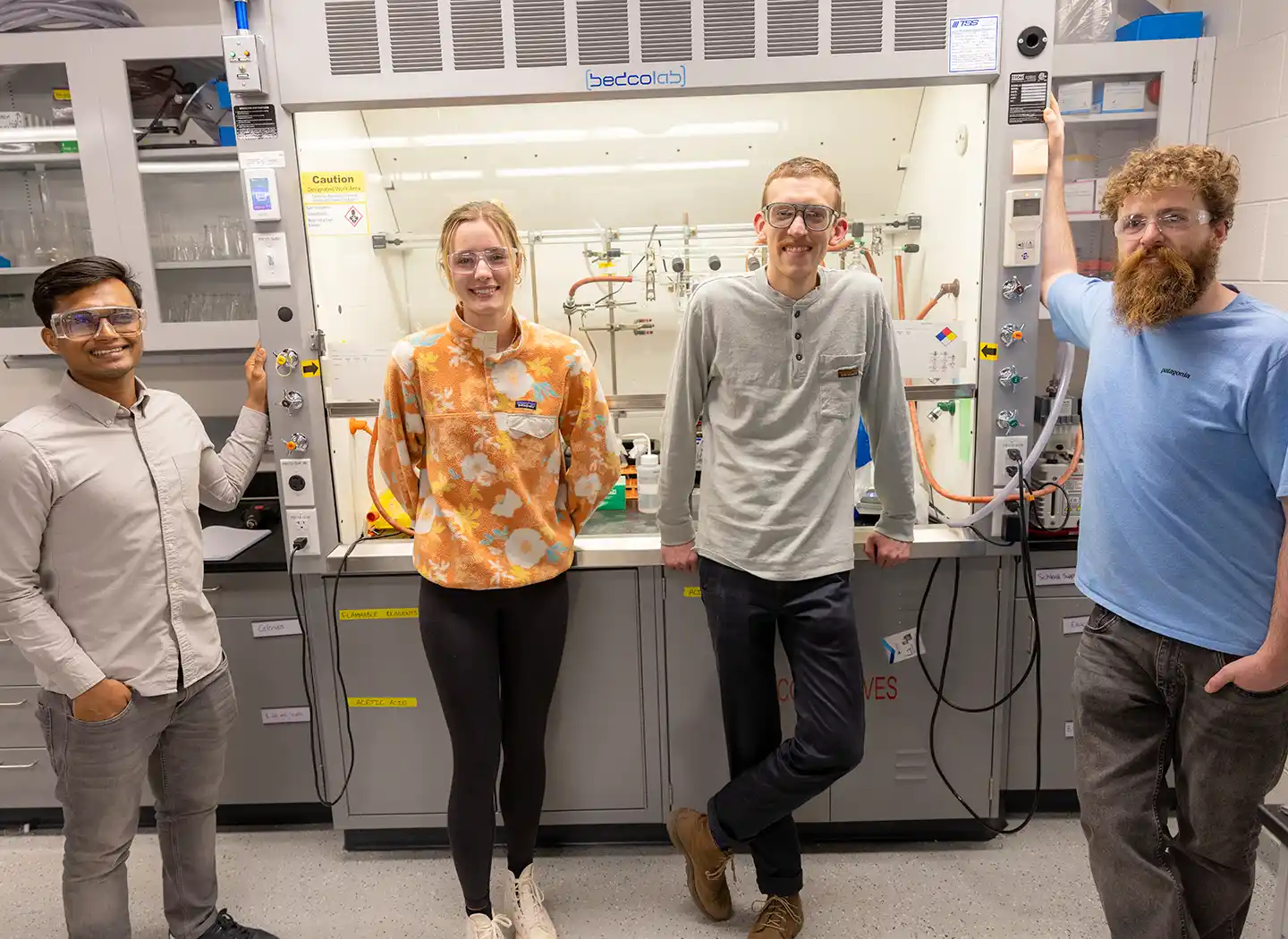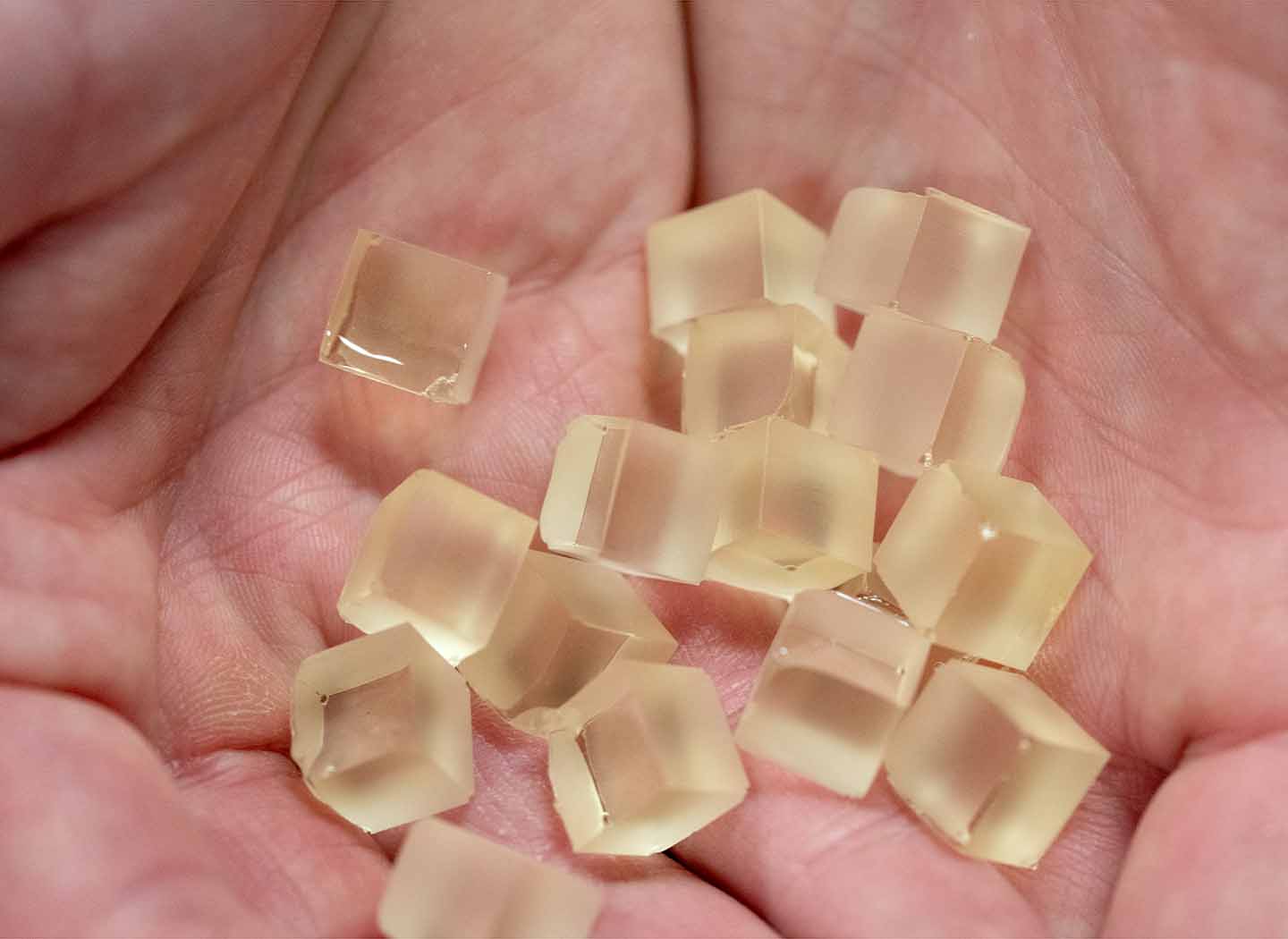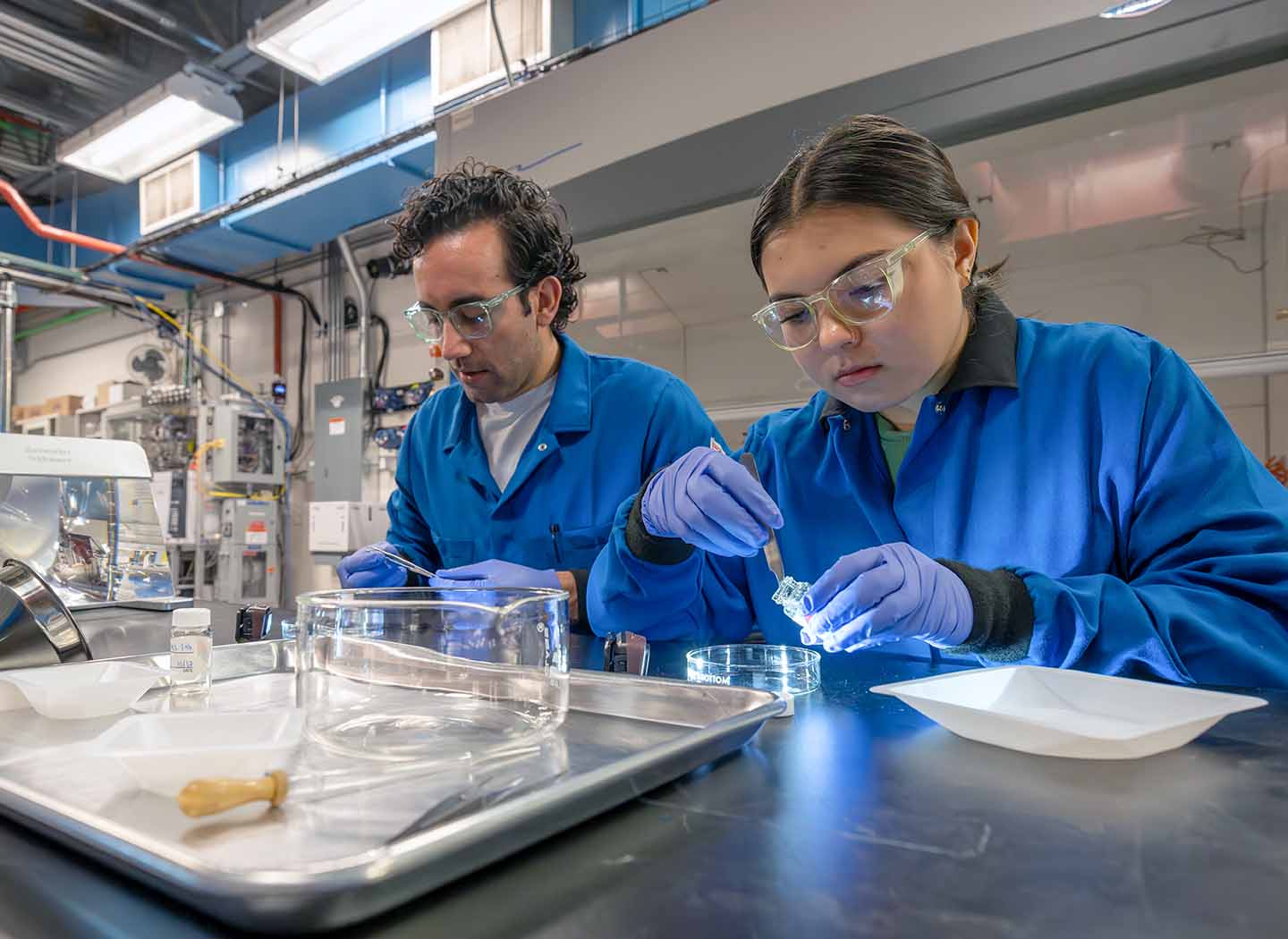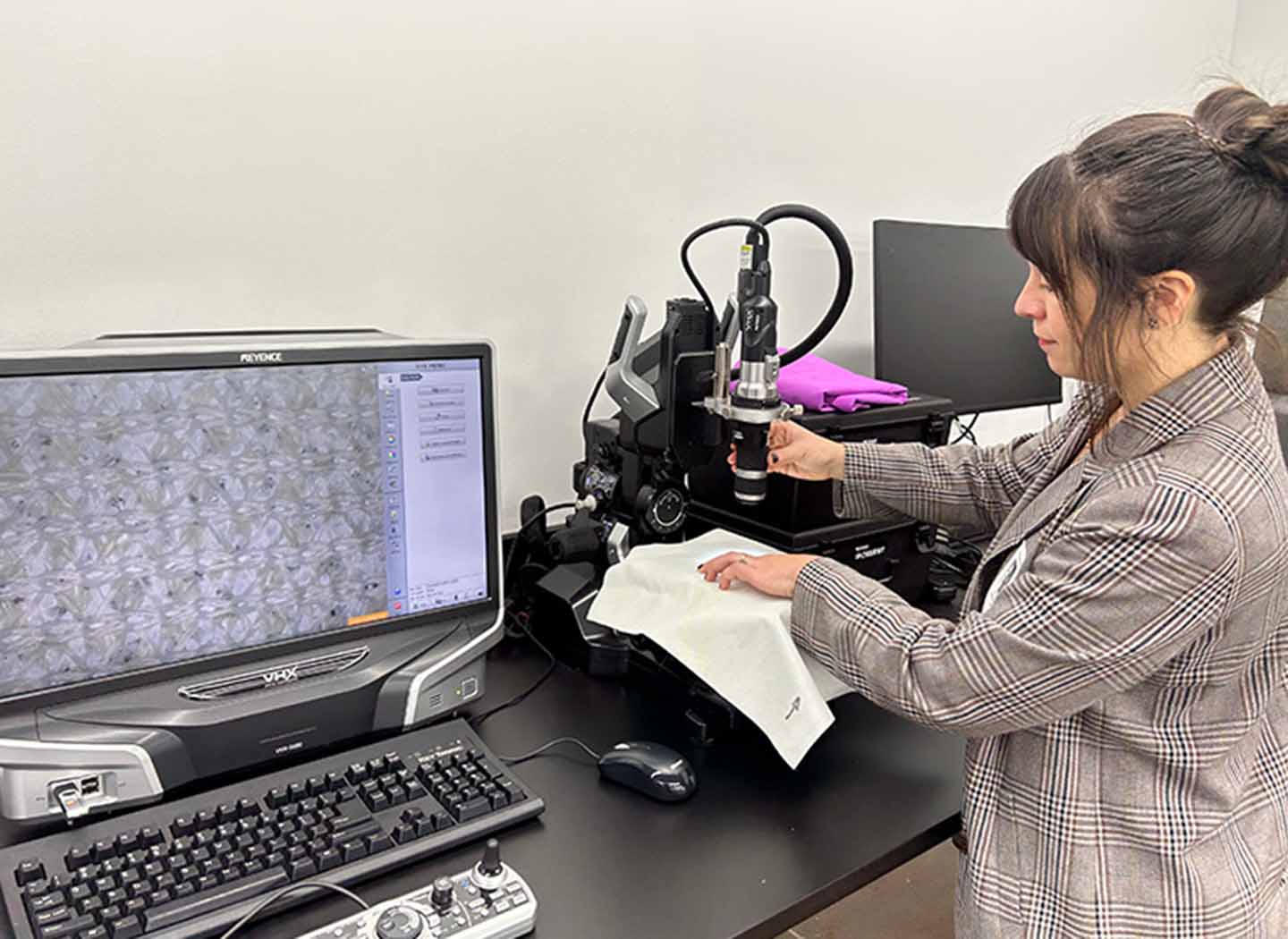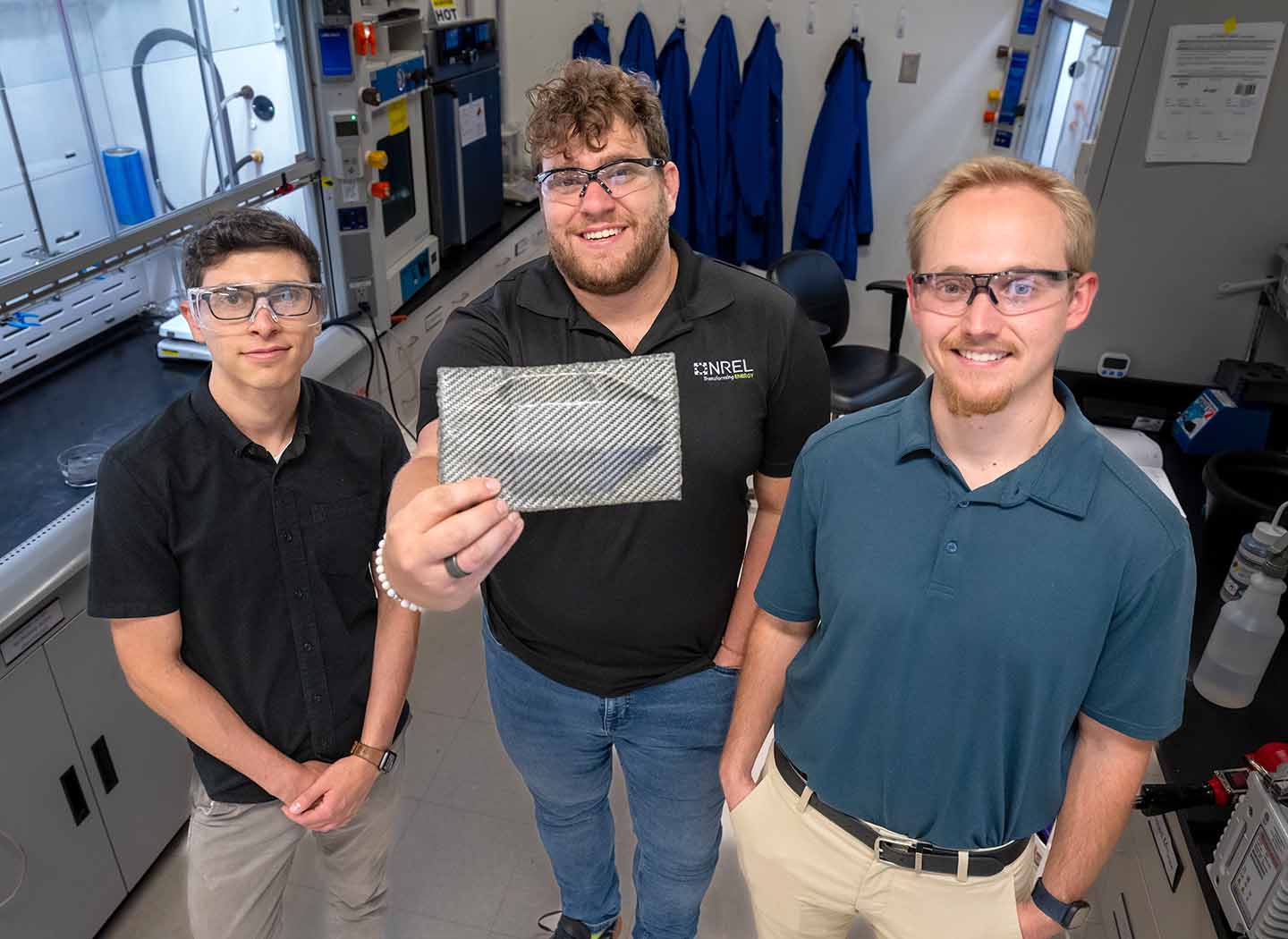Minerals and Materials Research
NLR's minerals and materials research capabilities support the recovery of critical minerals from land and water environments, as well as polymer substrates from waste plastics and other synthetic materials.
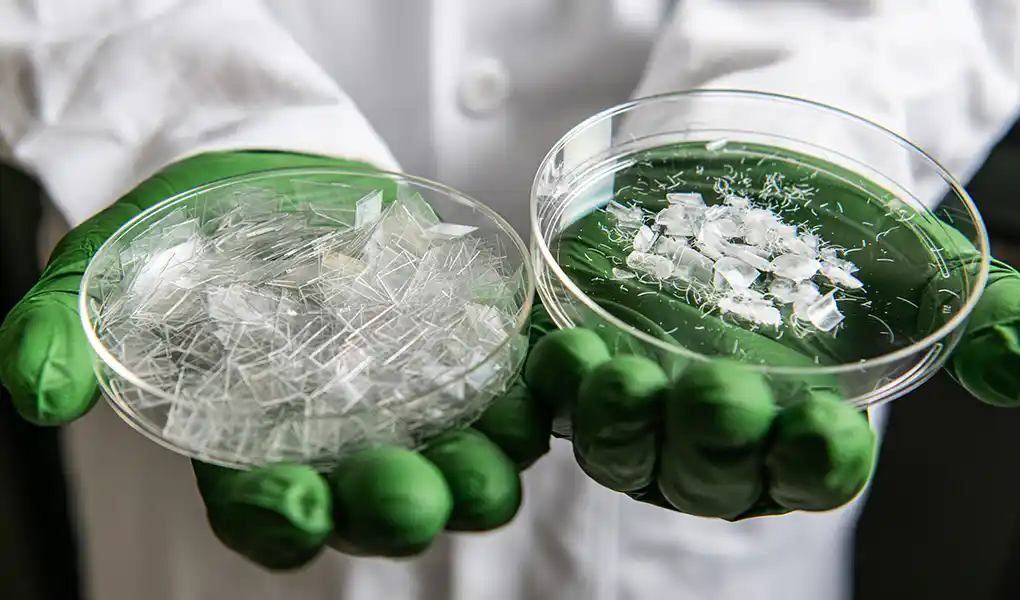
Explore how to partner with us.
NLR researchers seek to deconstruct complex and polymeric materials into usable building blocks that can be recycled or upcycled into performance-advantaged materials using novel processes. We also explore pathways to recover low-abundance components, including rare earth elements and other critical minerals, from the environment and waste sources.
Areas of focus include:
- Pathways for concentration and separation of critical minerals from low-grade feedstocks
- Nutrient recovery from wastewater treatment
- Chemical and biochemical catalytic systems to recover useful molecules from plastics and textiles
- Design of polymeric materials for enhanced functionalities, performance, and recyclability.
Innovations for Mining, Industry, and Agriculture
Industrial processes such as cement production, mining, agriculture, and heat generation for chemical production are energy intensive. To reduce energy costs of industrial processes, NLR develops innovative platforms—from mineralization of mine tailings to microbial systems—that can provide robust bioleaching of metals in battery recycling, biomanufacturing of food-quality protein, and biogenic calcium carbonate for Portland limestone cement.
Recovery and Use of Waste Plastics
Our focus is to valorize the recovery, reuse, and redesign of waste plastics, as well as textiles and rubber, through innovative and scalable processes. We innovate mechanical, biocatalytic, and chemical recycling technologies to impact the largest variety of potential feedstocks.
Polymers and Performance-Advantaged Bioproducts
Polymers are now produced globally at nearly 1 trillion pounds per year, primarily from petrochemical feedstocks. NLR seeks to create new materials from bio-based feedstocks and building blocks created from the deconstruction of waste plastics. An additional design point for the materials of the future is easier recycling at the end of use.
BOTTLE Consortium
The NLR-led BOTTLE™ is a U.S. Department of Energy multi-organization consortium focused on developing improved catalytic and biocatalytic recycling strategies for today's plastics and redesigning tomorrow's plastics to be recyclable-by-design.
How NLR's Recyclable-by-Design Material Capabilities Impact Our Economy
Contact
To leverage these capabilities and expertise or learn more about partnering with us, contact:
Share
Last Updated Dec. 31, 2025

